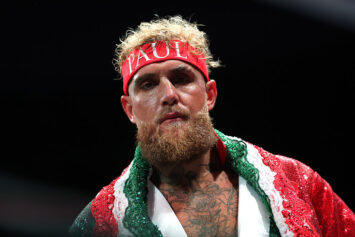New York City recently received a grade of C- from the New York City Comptroller’s Office for awarding contracts to minority-owned businesses. The Big Apple, which has a Black population of 24 percent, failed to support minority and women-owned business enterprises (MWBEs). A recent report from New York City Comptroller Scott Stringer shows that only 3.8 percent of city contracts were given to MWBEs.

MWBE Grants Were to Help Minority Businesses
With the pandemic crushing minority-owned small businesses, grants were created to help them. New York City Mayor Bill de Blasio awarded $30 billion in contracts to small businesses. MWBEs that were hit hard were supposed to benefit from the funds.
However, in Stringer’s “Making the Grade 2021” report he found that only $6 billion was awarded to MWBEs in the fiscal year ending June 30, 2021, and that’s a decrease of $2.8 billion from 2020.
“As this administration prepares to leave office, it is clear that the city, from the next mayor and comptroller to the next City Council, have abundant opportunities to address the systemic inequities experienced by communities of color, especially as we continue to rebuild our economy amid the COVID-19 pandemic,” notes Stringer.
MWBEs Have Been Left Out of Funding Throughout the Pandemic
This latest assessment comes after a July 2021 survey in which Stringer said MWBEs were struggling during COVID. In a survey of 503 MWBE owners, 50 percent said they had to lay off workers. Yet only 62 of the 503 competed for a city contract because of bureaucratic red tape, and the businesses also reported not getting any response from the city. Of the 62 who completed an application for a contract, only 10 were awarded contracts.
“MWBEs are the lifeblood of our commercial corridors – driving economic growth and employment opportunities across New York City. But MWBEs continue to face barriers to accessing COVID-related contracts and critical government funding, and our survey found that 85 percent reported they can not survive the next six months,” Stringer told the Gotham Gazette.
The report laid out how Black businesses in particular consistently come out worse than any other group in the NYC program: Since 2014, the City has been able to improve its grades with Asian Americans, Hispanic Americans, and women-owned businesses, but it has been unable to improve its “F” grade with African American-owned businesses over the last eight years. In FY 2021, the City earned a “B” grade with Asian American-owned businesses, a “D” with Hispanic American- and women-owned businesses, and an “F” with African American- owned businesses.
Black Businesses Say Bias is Keeping Them from Getting Funding
In addition to MWBEs not getting funding in New York, other Black businesses noted that bias kept them from proper funding from the Paycheck Protection Program during the pandemic. Xavier Epps, a founder of Black-owned XNE Financial Advising in Washington, D.C., noted the disparity between Black and white businesses in obtaining government funds.
Epps consulted with two Washington-area businesses in the fitness sector — one white-owned, the other Black-owned. “I can tell you…they received very different treatment. I was shocked that the system really does work against you based on race,” Epps told the Washington Post last week.
A Federal Reserve Bank survey of 9,693 small business owners found that only 43 percent of Black-owned firms that applied for PPP loans received them, compared to 79 percent of white applicants.
Automated Lending May Help MBWE Grant Issues
A New York University report found that online lenders were more likely to give minority-owned businesses loans than traditional banks.
Sabrina Howell, assistant professor of finance and co-author of the study, told WaPo, “that there may be benefits from a racial equity standpoint to removing humans and all of the biases, both conscious and unconscious, that come along with human decision-making from the lending process.”
She added, “Lenders with the most human involvement seem to be responsible for this evidence of discrimination.”
Automated online lenders don’t have the unconscious bias brick-and-mortar banks may have so they may provide more financial assistance to Black-owned businesses.
Stringer also made suggestions to improve grant funding for MWBEs. He wants New York to hire more people of color in city leadership roles to give more grants to Black-owned businesses.
He also suggests a “Rooney Rule” of companies awarding contracts to interview at least one minority candidate, similar to the NFL’s about filling coaching vacancies.
“There is still room for significant improvement,” said Stringer.




